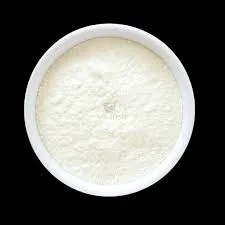
Jul . 10, 2024 16:27 Back to list
Similarity in Viscosity Levels among Different Grades of HPMC in Industries

hpmc grades viscosity. On the other hand, HPMC with a higher viscosity (around 1000-1500 cP) is commonly used in sustained-release formulations, where a controlled release of the drug is desired. In the food industry, HPMC grades with different viscosities are used as thickening agents, stabilizers, or emulsifiers in various products, such as sauces, soups, or dairy products. The choice of HPMC grade with the right viscosity depends on the desired texture and mouthfeel of the final product. In the construction industry, HPMC with a medium to high viscosity (around 4000-8000 cP) is commonly used in tile adhesives and cement-based mortars. The high viscosity of HPMC helps improve the workability and sag resistance of the mortar, allowing for easier application and better adhesion. Overall, the viscosity of HPMC grades plays a crucial role in determining their performance in different applications. It is important to select the right HPMC grade with the appropriate viscosity for each specific use case to achieve the desired results. By understanding the relationship between HPMC grades and viscosity, manufacturers can optimize their formulations and improve the quality of their products.
-
The Widespread Application of Redispersible Powder in Construction and Building Materials
NewsMay.16,2025
-
The Widespread Application of Hpmc in the Detergent Industry
NewsMay.16,2025
-
The Main Applications of Hydroxyethyl Cellulose in Paints and Coatings
NewsMay.16,2025
-
Mortar Bonding Agent: the Key to Enhancing the Adhesion Between New and Old Mortar Layers and Between Mortar and Different Substrates
NewsMay.16,2025
-
HPMC: Application as a thickener and excipient
NewsMay.16,2025
-
Hec Cellulose Cellulose: Multi functional dispersants and high-efficiency thickeners
NewsMay.16,2025







